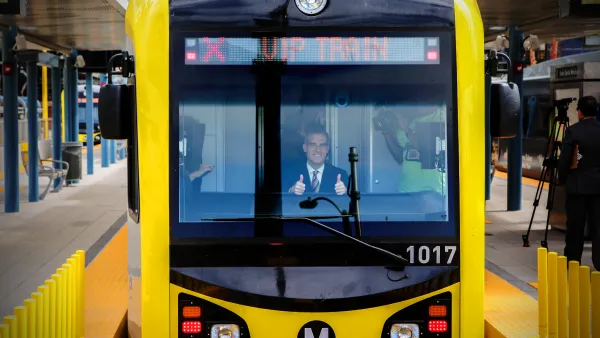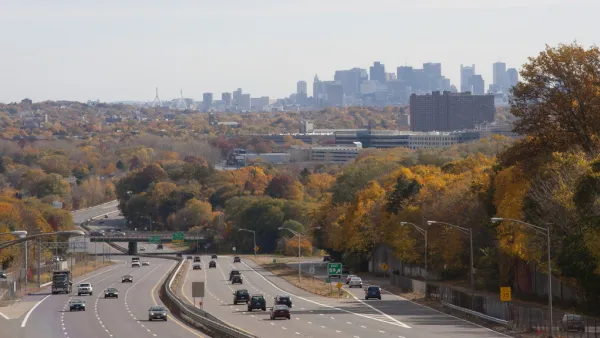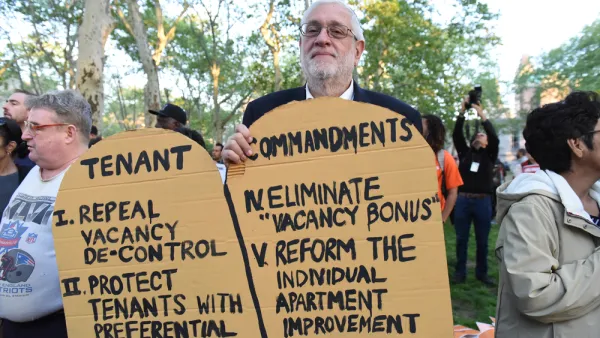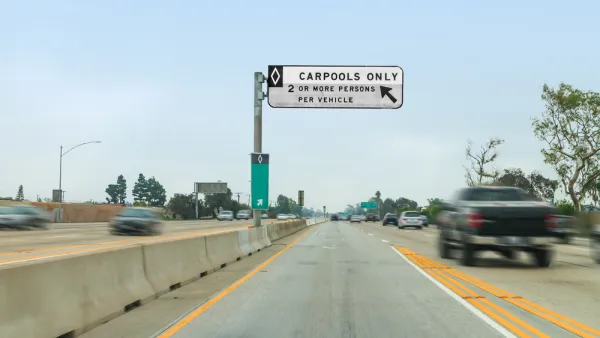Irvin Dawid discovered Planetizen when a classmate in an urban planning lab at San Jose State University shared it with him in 2003. When he left San Jose State that year, he took with him an interest in Planetizen, if not the master's degree in urban & regional planning.
As a long-time environmental activist, he formed the Sustainable Land Use committee for his local Sierra Club chapter and served six years on the Bay Area Air Quality Management District’s Advisory Council from 2002-2008. He maintains his interest in air quality by representing Sierra Club California on the Clean Air Dialogue, a working group of the Calif. Environmental Dialog representing business, regulatory and public health/environmental interests.
Major interests include transportation funding, e.g., gas taxes, vehicle miles traveled (VMT) fees, road tolls and energy subsidies that lead to unlevel playing fields for more sustainable choices.
He hails from Queens (Bayside) and Long Island (Great Neck); received an AAS in Fisheries & Wildlife Technology from SUNY Cobleskill and a B.S. from what is now Excelsior College.
After residing for three years on California’s North Coast, he’s lived on the San Francisco Peninsula since 1983, including 24 years in Palo Alto. Home is now near downtown Burlingame, a short bike-ride to the Caltrain station.
He’s been car-free since driving his 1972 Dodge Tradesman maxi-van, his means to exit Long Island in 1979, to the junkyard in 1988.
Major forms of transportation: A 1991 'citybike' and monthly Caltrain pass, zone 2-2. "It's no LIRR, but it may be the most bike friendly train in America."
Irvin can be reached at [email protected]

Surprising Ridership Data on Los Angeles Metro's New Expo Line Extension
The light rail extension opened May 20 and is already 70 percent toward meeting its 2030 ridership projection. According to a survey conducted in June by Metro, more than two-thirds of riders were new to the Expo Line.
Washington Adopts 'First-of-its-Kind' Carbon Reduction Rule
The state's unique Clean Air Rule is called 'cap-and-reduce.' Businesses that fall under the cap are required to reduce emissions, just like California's cap-and-trade program. However, they can not be forced to purchase carbon credits.

If Housing Affordability Is Top Concern, Let Metro Regions Sprawl
Research from BuildZoom, a San Francisco-based contractors' website, shows that housing affordability increases with a region's ability to build outwards, as opposed to upwards. Densification largely has not accompanied efforts to curb sprawl.

Rent and Eviction Controls on the November Ballot in Six Bay Area Cities
Voters in six Bay Area cities in four Bay Area counties will determine the outcome of eight ballot measures on rent and eviction control. Two of the cities will have city council-sponsored measures competing against voter initiatives.

Fatal Flaw of Express Lanes?
Since transportation agencies decided to make carpool lanes available for non-carpoolers (toll-paying solo drivers or electric vehicles), they've become congested in some metro areas, which can violate federal conditions on their use.

























